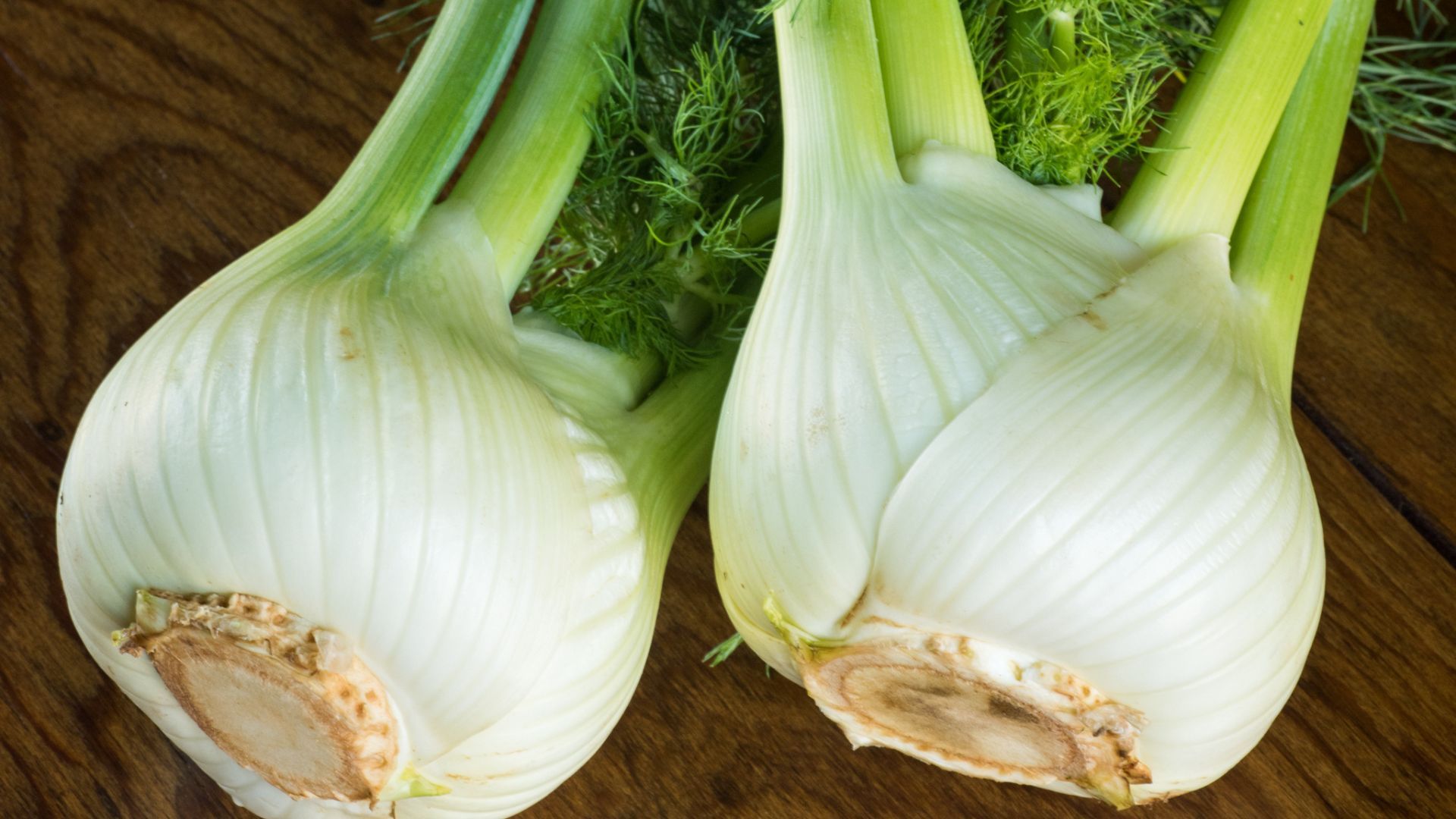The Health Benefits Of Fennel
Feb 12, 2025
Personally I absolutely adore fennel. Whether it is the fresh plant or a tea. Fennel (Foeniculum vulgare) is a highly valued medicinal and culinary plant used for centuries in traditional medicine. This aromatic herb is rich in essential nutrients, bioactive compounds, and antioxidants that contribute to a range of health benefits. The health benefits of fennel include improved digestive health, cardiovascular support, anti-inflammatory properties, and potential anticancer effects. This article explores the nutritional value of fennel, its therapeutic applications, and the latest scientific findings supporting its consumption.
Fennel is particularly rich in vitamin C, vitamin K, potassium, and dietary fibre, all of which play essential roles in immune function, bone health, heart health, and digestion (Booth, 2012; Slavin, 2013). Additionally, fennel contains flavonoids, phenolic acids, and volatile oils, which contribute to its antioxidant and anti-inflammatory properties(Badgujar et al., 2014).
Digestive Health and Gut Microbiota Support
One of the most well-documented fennel benefits is its ability to support digestion. Fennel contains dietary fibre, which enhances gut motility, promotes regular bowel movements, and helps prevent constipation (Slavin, 2013).
Furthermore, fennel has been used in traditional medicine for its carminative properties, which help reduce bloating and alleviate symptoms of irritable bowel syndrome (IBS) (Rahimi & Ardekani, 2013). The essential oils in fennel, particularly anethole, have been found to relax the gastrointestinal tract and reduce symptoms of dyspepsia (Omar et al., 2012).
Cardiovascular Benefits of Fennel
Fennel supports heart health through multiple mechanisms, including blood pressure regulation, cholesterol management, and antioxidant protection. The high potassium content in fennel helps regulate blood pressure by counteracting sodium levels and promoting vasodilation, reducing the risk of hypertension (He & MacGregor, 2008).
A study by Blekkenhorst et al. (2017) demonstrated that higher intakes of potassium-rich vegetables, including fennel, were associated with a lower risk of cardiovascular disease (CVD). Additionally, the polyphenols and flavonoids in fennel exert antioxidant and anti-inflammatory effects, which help reduce oxidative stress and lower LDL cholesterol levels (Badgujar et al., 2014).
Anti-Inflammatory and Antioxidant Properties
Fennel is a rich source of flavonoids, polyphenols, and phenolic acids, which have been shown to reduce inflammation and oxidative stress (Singh et al., 2014). Chronic inflammation is a major contributor to diseases such as cardiovascular disease, diabetes, and neurodegenerative disorders.
The volatile compounds in fennel, including anethole, estragole, and fenchone, exhibit anti-inflammatory propertiesby modulating cytokine activity and inhibiting pro-inflammatory pathways (Rahimi & Ardekani, 2013). These compounds also act as antioxidants, scavenging free radicals and reducing cellular damage (Goyal et al., 2019).
Fennel’s Role in Cancer Prevention
Emerging research suggests that fennel may have anticancer properties due to its bioactive compounds, particularly anethole and quercetin. Studies have demonstrated that these compounds exhibit antiproliferative effects on cancer cells, potentially reducing the risk of certain cancers (Goyal et al., 2019).
A study by Kaur et al. (2018) found that fennel extract inhibited the growth of breast cancer cells by inducing apoptosis (programmed cell death). Additionally, flavonoids and polyphenols found in fennel may help protect against oxidative DNA damage, a key factor in cancer development (Singh et al., 2014).
Bone Health and Vitamin K Content
Fennel is one of the richest plant-based sources of vitamin K, a key nutrient involved in bone mineralisation and calcium regulation. Vitamin K plays an essential role in activating osteocalcin, a protein necessary for bone formation and maintenance (Booth, 2012).
A meta-analysis by Cockayne et al. (2006) found that individuals with higher vitamin K intake had greater bone mineral density and a lower risk of fractures, highlighting the importance of consuming vitamin K-rich foods like fennel for skeletal health.
Immune System Support
Fennel provides vitamin C, an essential nutrient for immune function. Vitamin C enhances white blood cell production, helping to fight infections and strengthen the immune response (Carr & Maggini, 2017). Additionally, antioxidants and polyphenols in fennel contribute to immune support by reducing oxidative stress and inflammation, which are linked to immune dysfunction (Badgujar et al., 2014).
Potential Neuroprotective Effects
Recent research suggests that fennel may have neuroprotective properties, partly due to its antioxidant and anti-inflammatory effects. Phenolic compounds and flavonoids in fennel may help reduce neuroinflammation and oxidative damage, which are implicated in cognitive decline and neurodegenerative diseases such as Alzheimer’s disease (Singh et al., 2014).
Additionally, fennel’s potassium content may enhance cerebral blood flow, supporting cognitive function and reducing the risk of age-related cognitive impairment (Wightman et al., 2015).
Nutritional Composition of Fennel
Fennel is a low-calorie, high-fibre vegetable that provides essential vitamins and minerals. A 100g serving of raw fennel bulb contains approximately:
- Energy: 31 kcal
- Carbohydrates: 7.3g (including 3.1g dietary fibre and 3.0g sugar)
- Protein: 1.2g
- Fat: 0.2g
- Vitamin C: 12mg (20% RDI)
- Vitamin K: 62.8µg (52% RDI)
- Potassium: 414mg (12% RDI)
- Calcium: 49mg (5% RDI)
- Iron: 0.73mg (4% RDI)
- Magnesium: 17mg (4% RDI)
Best Way To Use
Roasted, pureed, in soups or especially delicious raw in a salad.
Conclusion
Fennel is a nutrient-dense, low-calorie vegetable with significant health benefits, including digestive support, cardiovascular protection, anti-inflammatory effects, immune support, and potential anticancer properties. Its high vitamin K, potassium, and polyphenol content makes it an excellent addition to a balanced diet for overall health and disease prevention.
References
- Badgujar, S.B., Patel, V.V. and Bandivdekar, A.H., 2014. Foeniculum vulgare Mill: A review of its botany, phytochemistry, pharmacology, contemporary application, and toxicology. BioMed Research International, 2014, p.842674.
- Booth, S.L., 2012. Vitamin K: food composition and dietary intakes. Food & Nutrition Research, 56, p.5505.
- Singh, R., Kaur, N., Kishore, L. and Gupta, G.K., 2014. Fennel as a functional food and bioactive source for human health. Journal of Functional Foods, 12, pp.275-286.
- Wightman, E.L., Haskell, C.F., Forster, J.S., Veasey, R.C. and Kennedy, D.O., 2015. Effects of chronic nitrate supplementation on cognitive function. Psychopharmacology, 232, pp.4043-4054.




